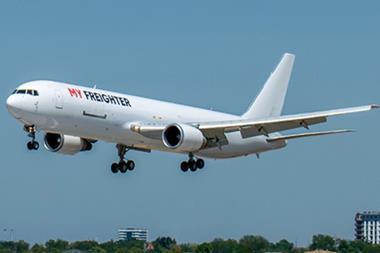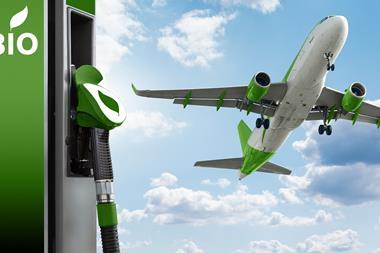The Emirates Group saw cargo volumes and revenues decline at its airline and ground handling businesses as last year's trade war and the coronavirus outbreak hit performance.
In its 2019/2020 annual report, Emirates SkyCargo saw cargo revenues decline by 14% year on year to $3.1bn, while volumes declined by 10% on a year earlier to 2.4m tonnes and yield per freight tonne km flown declined 2%.
The company said its cargo business felt the brunt of a difficult market environment as the China-US trade war affected the business.
Capacity reductions also had an impact, as operations were reduced during the planned DXB runway closure in the first quarter and because of flight and travel restrictions due to the Covid-19 pandemic in the fourth quarter.
Yields were also affected by a lower fuel surcharge and a strengthening US Dollar.
The airline also highlighted some of its achievements during the year: it launched new freighter flights to Taipei, Kano and Lagos while we suspended operations in Bogota, Los Angeles, Luxembourg and Mexico City.
It also launched ‘Emirates Delivers’ — an e-commerce shipping solution which provides customers with purchase consolidation options in the US prior to being delivered at their preferred destination — currently serving the UAE market.
During the year, Emirates Skycargo also strengthened its pharma capabilities with the opening of new facilities in Chicago and Copenhagen.
Meanwhile, the Emirates Group's ground handling business, dnata, saw cargo volumes decline by 4% to 698,000 tonnes, impacted by lower demand in the overall air cargo market during the year, and the 45-day DXB runway closure in the first quarter.
Dnata also strengthened its position in the UAE and regional cargo logistics industry by joining forces with Wallenborn Transports, Europe’s largest air-cargo road feeder services (RFS) operator.
The partnership will see the companies develop new products and services, and enter new markets.
Looking at the overall business, the runway closure and Covid-19 outbreak contributed to a 4.8% decline in revenues to $28bn, while profit was down by 28% $456m.
The profit decline was caused by goodwill impairments (mainly in Travel) $45m, write-offs due to Thomas Cook failure $26m and the impact of Covid-19 of $75m.
The airline part of the business actually recorded a 21% increase in profits.
Looking ahead, the airline is expecting that recovery from the coronavirus crisis will take at least 18 months, as it braces for a “huge impact” on its 2020-21 performance.
The Dubai-based company’s passenger operations were suspended a few days before the close of its financial year on 31 March, while its Dnata ground-handling division has also been affected by the depletion of traffic.
Chief executive Sheikh Ahmed bin Saeed Al Maktoum said the group had been “performing strongly” for the first 11 months of its 2019-20 financial year, before the situation “changed rapidly” around mid-February.
“We expect it will take 18 months at least, before travel demand returns to a semblance of normality,” he said.
“We are actively engaging with regulators and relevant stakeholders, as they work to define standards to ensure the health and safety of travellers and operators in a post-pandemic world.”















